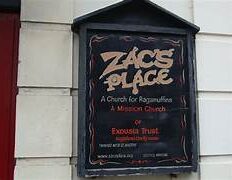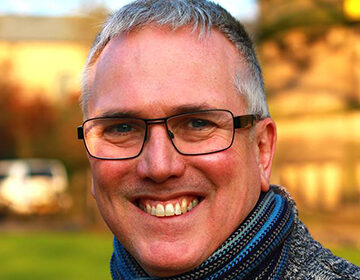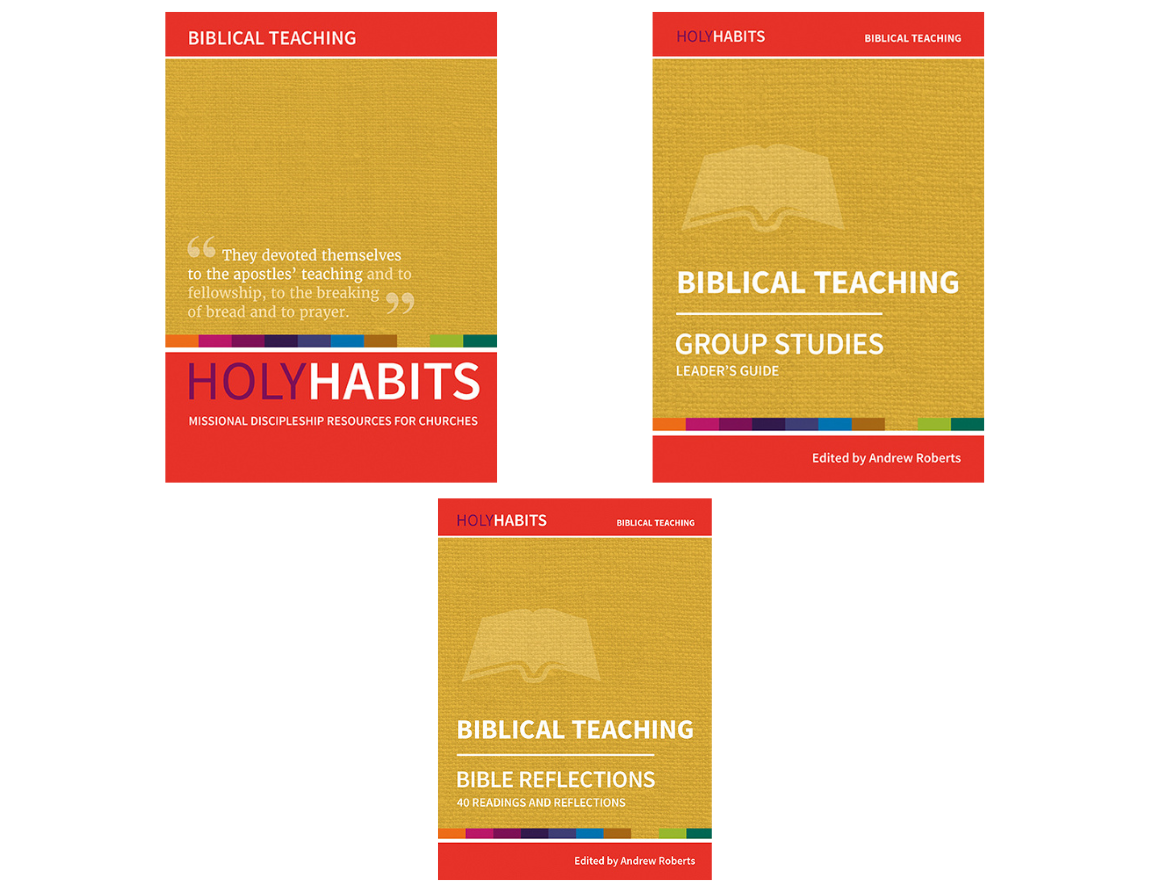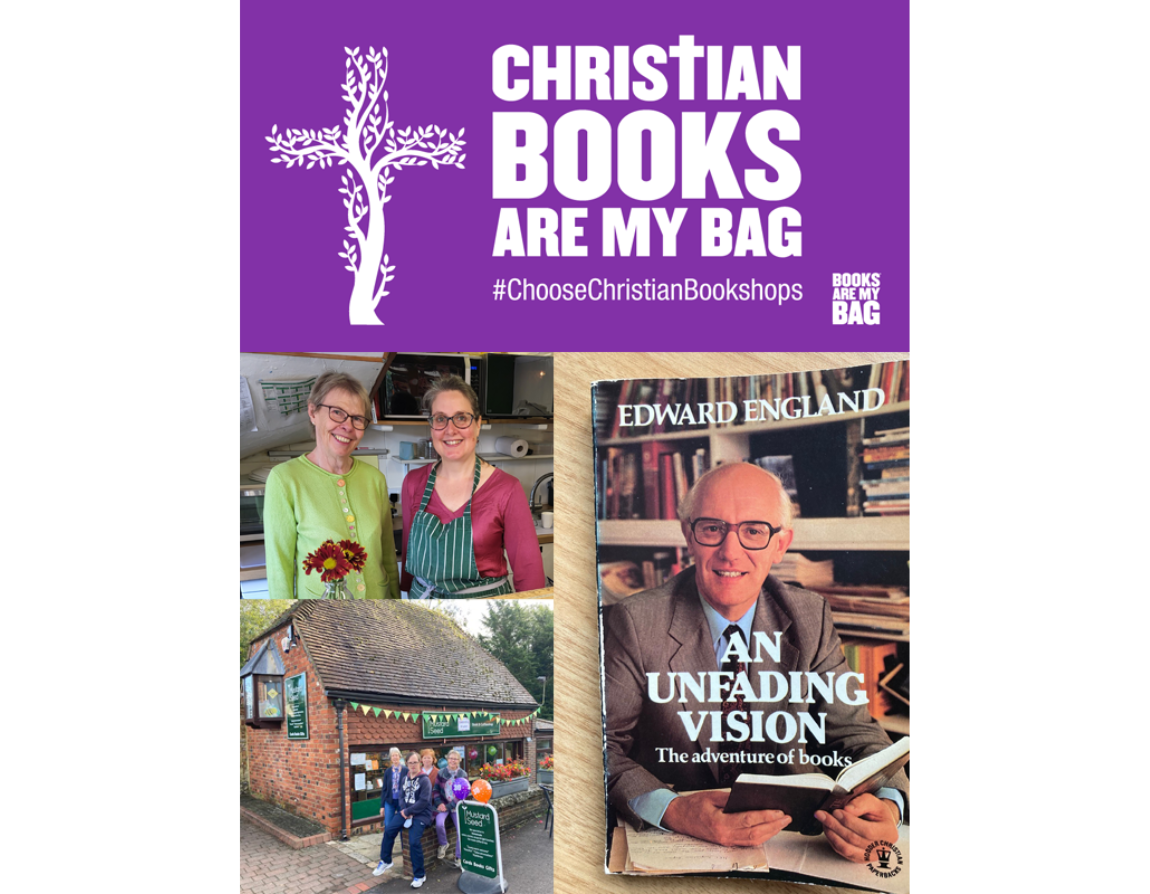Holy Habits founder and lead Andrew Roberts has written the first of our new series of articles on the principles and practice of biblical teaching.
8 October 2023
A divine way of life
In his inspiring book The Word That Redescribes the World, Walter Brueggemann points to the importance of living out the teaching of the Bible in ‘glad obedience’ in the world that ‘is the venue for God’s reign’. He advocates the living out of biblical teaching as ‘a bodily act of obedience to God-given possibility’.
I love that last phrase: ‘a bodily act of obedience to God-given possibility’. It speaks of incarnation. In Jesus the Word was made flesh in a unique way, as John reminds us in the magnificent poetry of the prologue to his gospel. But the Word becoming flesh is, I believe, a work of wonder and grace that God wants to work in us each and every day, a work that enables us to be full of grace and truth in our homes, our communities, our places of work and our places of social, political and economic engagement. Not always easy of course.
In the 2016 series of the BBC show The Apprentice, the candidates were filmed on a day off. Different people were doing different things. One of them, Samuel Boateng, a car salesman from London, was shown reading a book. That book was the Bible. In an interview with Premier Radio, Samuel explained how engaging with the Bible and being devoted to its teaching shaped the way in which he conducted himself in The Apprentice house and enabled him to cope with the process:
‘If it wasn’t for these things [reading the Bible and praying] that were instilled in me from childhood, I would have struggled massively through the process.’
Learning from each other
Some days the fruit of this may be very evident in our lives, and other days less so. That is one reason why God has gifted us one another. When we explore biblical teaching together, it is so helpful when we can be honest with each other about how the teaching of a particular passage is or is not evident in our lives at the time and then be prayerful in supporting one another as we seek to live it out.
Loveday Alexander notes the coupling of the apostles teaching and fellowship in Acts 2:42. She argues that ‘students [disciples] learn from each other just as much as from their teachers’. Her comments dovetail neatly with the thinking of Sylvia Wilkey-Collinson, who has studied the rabbinical teaching methods of Jesus in depth. Drawing on that study and her knowledge of good adult teaching practices, she advocates a ‘discipling model of teaching’ for the fruitful nurture of disciples today.
Her model has six key components. It is:
- Relational
- Intentional (all members have a responsibility for learning)
- Life related
- Typically communal
- Reciprocal (learning is mutual and collaborative)
- Centrifugal in focus (disciples go out from community to be involved in service and mission and then return to reflect)
The importance of questions
While not disputing Paul’s view that some are graced with a particular gift of teaching (1 Corinthians 12:28), Sylvia strongly affirms the view that teaching and learning are gifts of the whole community. In the earliest Christian community, that included children as well as adults. Today children have an important role in the exploration and application of biblical teaching, not just through the questions they ask but through their insights and testimonies too.
The centrifugal nature of healthy biblical teaching was a hallmark of the teaching ministry of Jesus. In Mark 3:14 we read that Jesus appointed twelve that they might be with him and be sent out by him to do their work – in their case a work of proclamation. When they met with him and one another, they shared their learning from their work and shared together in teaching facilitated by Jesus. In public much of Jesus’ teaching centred on storytelling in the form of parables. In private his teaching was much more mutual and collaborative with Jesus typically asking questions to enable insights and truth to emerge in the midst of a conversation.

‘What do you find at the heart of the community? An open Bible.’
Zac’s Place
Conversations can of course be very unpredictable. At my favourite fresh expression of church, Zac’s Place in Swansea, there is a sign next to the entrance that is refreshingly different. It says: no drugs, no guns and no explosives. Immediately you get the sense that this is going to be a lively place. And then what do you find at the heart of the community? An open Bible, as Pastor Sean Stillman explains:
‘Building disciples is an unbelievably messy process and I think it was messy for Jesus and it continues to be so for us. We unashamedly focus a lot of attention to studying the Bible together; we call it our tribal gathering. We attract all sorts. We do some good old-fashioned Bible study, topped and tailed with a prayer. There’s often arguments, raw emotions, it’s unpredictable.’
This may not be your typical church small group, but it’s one that, amid the raw emotion, is full of grace and truth, of light and love, as Sean illustrates in this story:
‘On one particular occasion, somebody fell through the door and she was effing and blinding and being foul-mouthed; someone who’s known to us, who’s very dear to us, sleeping rough within the community with addiction issues. She’d had a bad day in court, someone had stolen her phone, someone had thrown water over her to wake her up that morning. Without any prior warning one of my dear colleagues just disappeared from the room. He came back with a bowl of water and knelt at this young woman’s feet. He offered to bathe her feet and she agreed. As he bathed her feet, I’ve never seen someone’s demeanour change so quickly. She’d gone from singing foul-mouthed, abusive songs to just sitting back in her chair relaxing and singing “Jesus loves me, this I know”. You could have heard a pin drop. She left our gathering that night with her arms round two friends singing “Jesus loves me, this I know” down the street.
‘Eight days later the newspaper headlines read, “Woman found dead outside the station”. This was our friend who was very much part of our community here. She’d overdosed. And as I spoke with her family to make the funeral arrangements, her father requested that we sang “Jesus loves me, this I know”. I said, “Oh you heard about what happened?” And he said, “No, no, not at all.” The reason he wanted us to sing that song was because it was the one he sang her to sleep to as a child.
‘It just staggered me that, despite all her trauma and heartache, she carried those words with her, her whole life. She’d found a tiny bit of refuge, a tiny place of hope where she felt she could express those words and she carried those words to her grave. Somebody did comment that the Bible study that night was “So chaotic, we didn’t get very far tonight did we?” Then somebody else said, “Well actually I think we got to heaven.”’
The gift of transformation
I began by quoting Walter Brueggemann and end in the same way. When he comes to biblical teaching, he argues that ‘what counts in the end is not a better understanding or a new idea; what counts is a community of engagement that takes up the gift of transformation and acts it out in the world in holy living and prophetic witness’. To which I’m sure the young woman and those at Zac’s would say, ‘Amen’.



